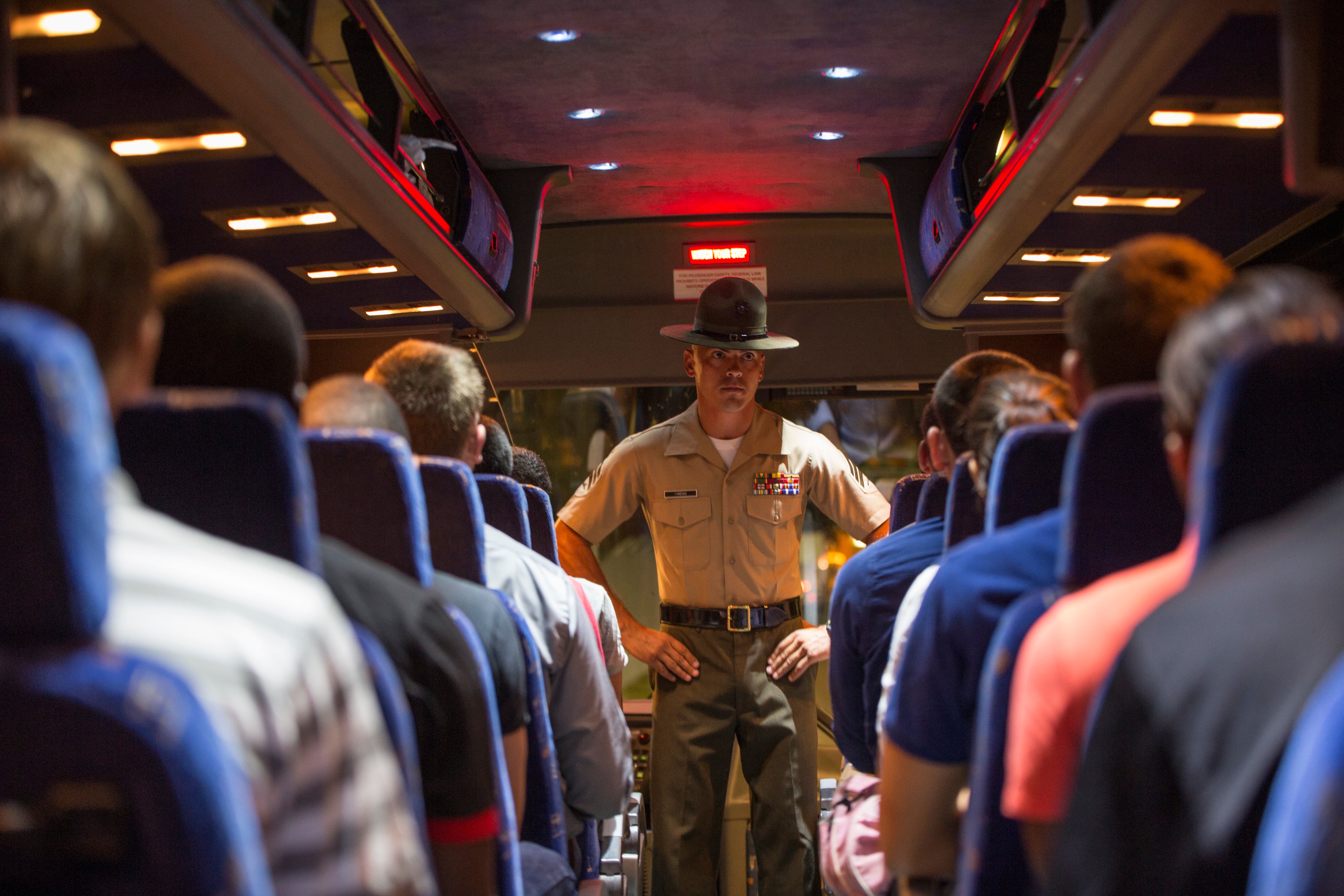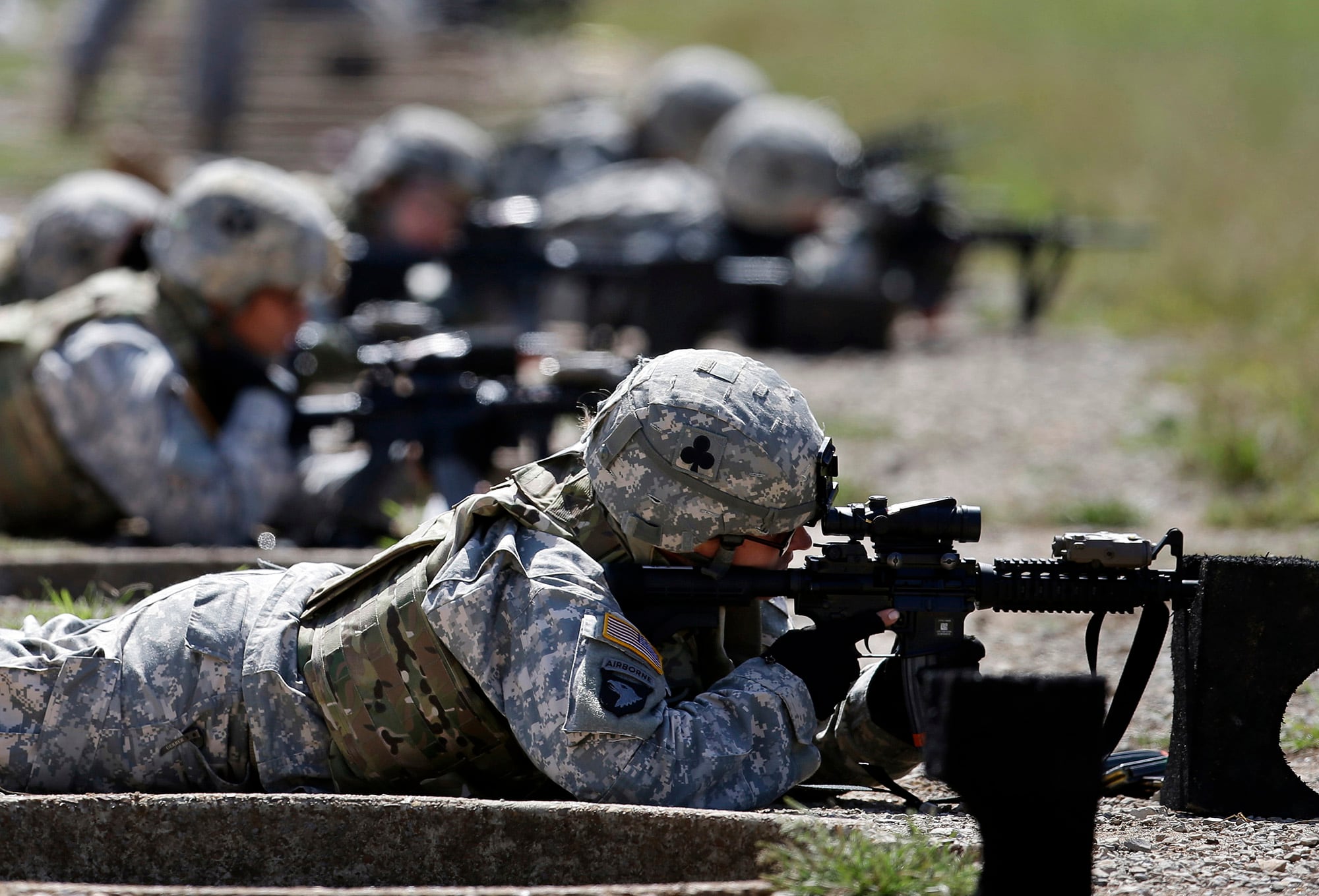The former National Security Agency director and nine prominent retired general and flag officers have signed on to legal brief asking that the U.S. Supreme Court rule that the military draft is unconstitutional.
Their filing is in support of a petition that argues the Selective Service System is unconstitutional because it applies only to men ages 18 to 26 and not women.
Former Director of the National Security Agency Michael Hayden, a retired Air Force four-star, and retired Army Gen. Stanley McChrystal top the list of supporters on the legal brief.
The group’s attorneys filed their brief Wednesday to support the petition filed by the National Coalition for Men, represented by the American Civil Liberties Union against the Selective Service System on Jan. 8.
RELATED

The original claim argues that the high court should overturn a ruling it made in 1981 when the same challenge was made. At the time the justices ruled that the draft was constitutional because its primary function was to ensure combat ready forces for defense of the nation. At the time, women were excluded from combat roles.
But that’s changed.
The Pentagon announced it would lift the ban on women in combat jobs in 2013. Over the following six years the services opened up all jobs previously closed to women.
By continuing to make Selective Service registration and draft eligibility apply only to men, the Coalition for Men argues that the system is violating constitutional rights of men by sex discrimination.
The original lawsuit was filed in 2013 after the Defense Department announced an end to the ban on women in combat jobs.
The federal Southern District of Texas court agreed that men-only registration was unconstitutional, but the 5th Circuit Court of Appeals reversed that ruling, which sent it for review by the Supreme Court.
RELATED

Should the high court overturn the previous ruling, that wouldn’t automatically open the draft to women. It would likely go back to Congress, which wrote the law.
That is hinted at in the filings, in which authors list options for Congress, from extending selective service registration to women, eliminating the registration requirement, basically abolishing the draft or coming up with a new system for ensuring military readiness.
Legislative proposals in recent years, including part of the 2016 defense spending bill, regarding registration of women have stalled out in Congress, over worries over traditional family roles for women and the viability of the Selective Service System itself.
The system costs about $23 million a year and studies been critical as to whether it would be effective if officials needed it to conduct a draft.
There hasn’t been a draft more than 45 years, and Pentagon officials roundly say they prefer the all-volunteer force over conscription.
Men between the ages of 18 and 25 who don’t register for the draft face fines and even jail time. They could also be made ineligible for benefits such as student loans.
But a group that strongly supports a return to the draft, the All-Volunteer Force Forum, and its head, retired Army Maj. Gen. Dennis Laich, told Military Times that while they support adding women to the Selective Service registration, having the courts decide the matter is a “slippery slope.”
“If the Supreme Court were to rule it is unconstitutional for men only to register, then the remedy falls to Congress to either do away with Selective Service altogether or require women to register,” Laich said.
At a number of AVF Forum events since its 2013 founding, Laich said that attendees have voiced that specific concern — “no way are you going to draft my daughter.”
That sentiment could sway elected leaders, Laich said.
“Can you predict what’s going to happen with this Congress on anything, especially National Security issues?” Laich said. “I think it’s a risk that needs to be identified.”
Laich said he’d rather see Congress take up the issue itself but past experience doesn’t support that move.
In March 2020, the National Commission on Military, National and Public Service recommended in its report to Congress making women eligible for the draft.
“This is a necessary and fair step, making it possible to draw on the talent of a unified nation in a time of national emergency,” according to the report.
Hayden, McChrystal and others on the supporting brief cite similar reasoning for their argument that not including women unfairly discriminates against both men and women and hurts military readiness in case of a draft.
The report authors noted a 2016 Pentagon assessment that showed only about 30 percent of those aged 17 to 24 would be eligible to serve. Half of those eligible were women.
“If the United States enters a war that requires mobilization of the draft, women will be necessary to meet the military’s needs,” according to the brief.
The brief reviews the history, especially recent gains, of women in the military. Those include a 1990s end to the ban on women serving aboard Navy ships, the service of women in combat zones during recent wars, graduation and completion of rigorous, elite training such as the Army Ranger School, Special Forces selection, Navy SEAL officer assessment and selection and Marine Infantry Officers Course.
The Selective Service System was granted an extension to file its response until March 15. Should the Supreme Court take up the case it would likely be in the fall term, which begins in October.
The other named retired general and flag officers who signed on supporting the petition include: Army Lt. Gen. Claudia Kennedy, Army Maj. Gen. Randy Manner, Army Maj. Gen. Gale Pollock, Marine Corps Brig. Gen. Stephen Cheney, Air Force Brig. Gen. Carlos E. Martinez, Army Brig. Gen. Marianne Watson, Navy Rear Adm. John Hutson and Navy Rear Adm. Harold L. Robinson.
Todd South has written about crime, courts, government and the military for multiple publications since 2004 and was named a 2014 Pulitzer finalist for a co-written project on witness intimidation. Todd is a Marine veteran of the Iraq War.




